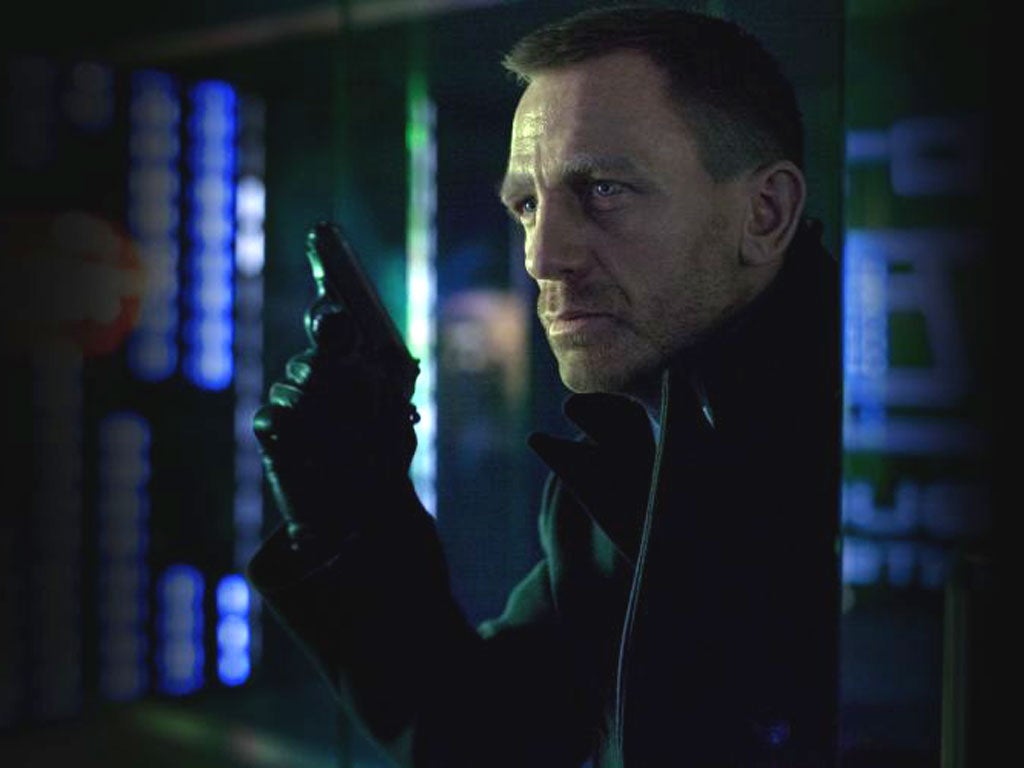First Night: Skyfall - Craig's best Bond
Mendes reinvents the formula and unleashes 007's dark side to put him back on top after 50 years

Four years on and Bond 23 is finally unveiled. This is Daniel Craig’s third outing as 007.
After the promise of Casino Royale and the anti-climax of Quantum Of Solace, the question was whether he (or new director Sam Mendes) would be able to bring anything fresh to a series that has been running for half a century. The answer is, yes, absolutely. If not a full blown triumph, this is certainly one of the best Bonds in recent memory.
Mendes has gone back to basics: chases, stunts, fights. At the same time, he has subtly re-invented the franchise, throwing in far greater depth of characterization than we’re accustomed to in a series of films that are often proudly superficial. This is a risk. If you try too hard to make Bond films meaningful, you risk straining away the fun. However, even if the film does occasionally pull in opposing directions, Mendes is largely successful in combining the action schtick with the soul searching.
The film opens conventionally enough with some pre-credits spectacle – Bond on one of the many chases that run through the film, accompanied by Naomie Harris, a kick ass version of Miss Moneypenny. This interlude involves trains and motorbikes and is staged with the elan you would expect. However, the credits themselves hint at the different tack the film plans to take. Instead of the silhouettes of women, we’re offered far darker imagery with a hint of The Lady Of Shanghai about it – Bond in a hall of mirrors – all accompanied by Adele’s resounding theme song.
The first hour is full of startling plot twists. The filmmakers use their London locations with ingenuity, Terry Farrell’s MI6 building and the underground to the fore. There are also nostalgic references to Churchill and constant invocations of the past. Bond himself, sounding like a character from a John Le Carré novel, acknowledges how anachronistic he is beginning to seem. There is talk of “living in ruins”, and of the British secret service being all “played out.” British spies are being killed at the rate of five a week and their executions posted online. Highly secret information about their identities has been stolen and M (Judi Dench) is the target of the politicians’ wrath.
In one of the film’s less memorable episodes, Bond is dispatched to Shanghai, gambles, hangs from lifts, and enjoys a soft focus love scene in a shower with the femme fatale Severine (Berenice Marlohe.) So far, so conventional. What really lifts Skyfall is its villain, Raoul Silva, superbly played by Javier Bardem. Heavy set, with dyed blond hair and a deceptively soft and even camp manner, he combines pathos, grotesquerie and a Hannibal Lecter-like viciousness. For reasons the script skims over, he has an utter hatred of M and will go to apocalyptic lengths to destroy her. He’s a former spy himself, a distorted reflection of Bond, or a Moriarty to his Holmes.
One of the pleasures of Skyfall is the amount of screen time given to characters who in previous films have had only a marginal role. Dench’s M in particular is foregrounded. She’s at once a maternal figure and someone (we learn) who has behaved very ruthlessly towards her spies. Ralph Fiennes registers strongly as a bureaucratic type, breathing down her neck but with hidden reserves of courage. There is enjoyable banter, too, between Bond and Ben Whishaw’s very youthful but very boffin-like Q. An added treat is Albert Finney as a bearded Scottish gamekeeper/vigilante.
Craig again impresses as Bond. He switches without fuss from Roger Moore-style self-deprecating comedy (adjusting his cuff links in action sequences) to the darker, more intense scenes which focus on Bond’s childhood traumas. The film, one of the longest in the recent Bond canon, occasionally becomes repetitive. The plot doesn’t really stack up and the Sam Peckinpah-style finale, in the Scottish Highlands, initially seems a little self-indulgent given all the shootouts and chases we’ve already seen. However, the film ends with an emotional kick that you don’t often find in Bond. It also shows the way forward. At the age of 50, there is no sign at all that Bond is finished yet.
Join our commenting forum
Join thought-provoking conversations, follow other Independent readers and see their replies
Comments
Bookmark popover
Removed from bookmarks